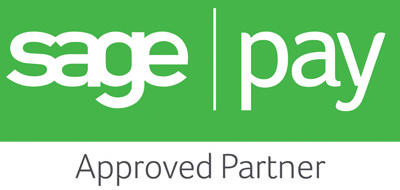Could Influencer Marketing Work for B2B?
When you hear the words “influencer marketing” your first thought is likely to be Love Island competitors flogging fast fashion, or people scouting for freebies because they have a few thousand Instagram followers. While this is certainly part of the concept of influencer marketing, there's much more to it, and it's also taking off for businesses too.
The actual idea of influencer marketing isn't new, for many years people have looked to the celebrities or colleagues they admire for guidance on what to wear, what to use, what to eat and even how to get a work/life balance. Celebrity endorsements are a form of influencer marketing, and even asking a trusted friend for input on which shoes you should buy is a form of influencer marketing, albeit a very informal one.
Results from the 2019 Content Preferences Survey Report (conducted by Demand Gen Report) bear this out, with 46% of respondents saying peers and colleagues were their go-to sources of information, compared to just 24% who get their information from industry newsletters. This shows that personal recommendation (another way of looking at influencer marketing) carries a lot of weight when it comes to what to buy and where to spend money.
A strong B2B influencer marketing strategy starts with identifying the key figures in your industry and building a relationship with them. Some of these people may already be your employees so make good use of your in-house talent. Think carefully about the strengths of these people – those who are excellent at public speaking would make a great podcast guest or video webinar star.
People with a flair for writing could create white papers and guides for you, while anyone who excels at making things look easy would be ideal for video clips and demonstrations. You may have to support your influencers with content creators like videographers, video editors or copywriters, but the key is getting an influential and highly respected industry figure to hitch their wagon to yours, conferring their reputation onto your business.
To make a B2B influencer marketing strategy work you have to be clear about what you expect to gain from it. If you're looking for a quick payoff, like lead generation or event sign-ups you may find it hard to attract the right talent – no-one wants to waste their time and tarnish their reputation on a one-hit wonder campaign. Your best bet is to identify your longer term goals and lead with these when approaching potential influencers.
Be prepared to put the work in for a successful influencer marketing strategy. Remember, an influencer doesn't work for you, they are working with you and they have their own professional goals to work towards. If you can make your activities mutually beneficial they will want to keep growing the relationship and this can put you in touch with other great influencers.
Having the top talent advocating for you can make the difference between you and your competitors when purchase decisions are being made at the top level. At this stage in the buying cycle all the beans have been counted, the pros and cons weighed up, and it is purely down to the decision of the executives. Faced with a choice between two competitive options, the one who has the top talent advocating for them will come out on top.
So, banish thoughts of Love Island “celebs” and “Instagram models” from your mind and think about how influencer marketing can help your business. You might even turn out to be an influencer yourself!
